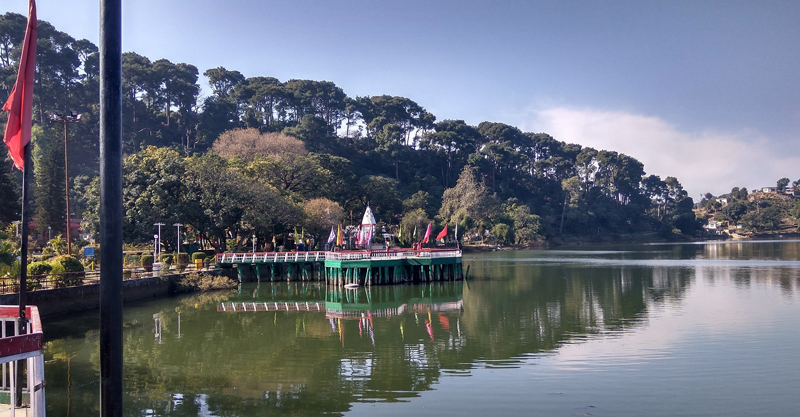Water quality deteriorating due to continuous flow of effluents
No seriousness towards establishment of STPs
Mohinder Verma
JAMMU, Mar 29: Aquatic life in two famous lakes of Surinsar and Mansar is under severe threat as quality of water is deteriorating continuously due to uncontrolled flow of effluents from the adjoining areas but the Government has failed to act on its decision about setting up of required number of Sewage Treatment Plants.
As per the data of the monitoring stations established by the Jammu and Kashmir State Pollution Control Board for these two lakes under National Water Quality Monitoring Programme, dissolved oxygen level in Surinsar and Mansar lakes is less than 4 mg/litre although it should be more than 6 mg/litre as per the national environmental standards, official sources told EXCELSIOR.
They said that adequate dissolved oxygen level is necessary for good water quality and when this level in water drops below 6 mg/litre or 5 mg/litre the aquatic life comes under acute stress.
Similarly, as per the national standards the biochemical oxygen demand commonly known as BOD should be almost zero in the water but the same in respect of these two lakes is more than 6 mg/litre, which is another clear indication of severe threat to the aquatic life in Surinsar and Mansar lakes, sources further said while disclosing that water quality of Surinsar lake is worst than Mansar lake.
“The State Pollution Control Board is testing the water of these lakes after every two months and continuous deterioration in the quality has been noticed”, they further said while holding uncontrolled flow of effluents from the adjoining areas to these lakes as major reason behind the prevailing situation.
It is pertinent to mention here that the water of Mansar lake is tested at two locations—near boating club and in the middle of the water body while as in Surinsar lake the water is tested at a point from where the effluent enters the water as in the absence of boat facility the State Pollution Control Board finds it difficult to take sample from the middle of this water body.
“If immediate measures are not taken to prevent flow of effluents from the residential and commercial establishments not only aquatic life will bear the brunt even these lakes will shrink considerably in the next few years”, sources said while holding Government as well as local populace responsible for the deteriorating quality of water of these lakes.
They further said that many a times the successive State Government made announcements about establishment of sufficient number of Sewage Treatment Plants (STPs) for both these lakes so as to prevent their further pollution but till date these announcements have remained confined to the papers only.
Though a proposal for establishment of STPs with the financial assistance under Prime Minister’s Development Programme (PMDP) was formulated and submitted to the Tourism Department yet it has not been forwarded to the Union Government till date”, sources said, adding “keeping in view the apathy of the Government nobody knows when formal steps will be initiated to protect these two lakes”.
“The dilly-dallying approach in setting up of STPs is notwithstanding the fact that Division Bench of State High Court, in a Public Interest Litigation, has passed directions a number of times for protection of these lakes”, sources further said.
It is pertinent to mention here that Advisor to Governor K Vijay Kumar, while chairing a meeting on January 22, 2019, had asked the concerned officers to take measures to maintain the glory of these water bodies. He had also directed the Wildlife Protection Department for taking concrete measures to conserve and protect turtles in Mansar Lake.
Moreover, he had stressed on maintaining water quality of Mansar and Surinsar lakes and initiating steps for setting up of Sewage Treatment Plants as early as possible to stop the inflow of polluted water.
However, no follow-up action has been initiated on these directions of the Advisor till date and water quality is continuously deteriorating due to uncontrolled flow of effluents, sources said.


